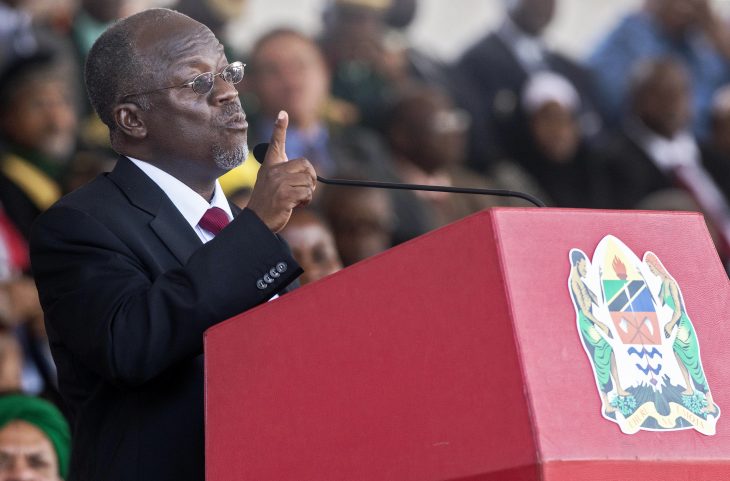Tanzania is one of the rare African countries known for being peaceful, democratic and multi-ethnic. Its revered former long-time president Julius Nyerere decided, unlike many of his counterparts, to withdraw from power in 1985. But since the election of President John Magufuli in late 2015, Tanzania is losing this positive image envied by its neighbours.
“Murders and attempted murders of opponents, suspension of media deemed critical, disappearances of journalists, harassment of human rights activists and artists have reached an unprecedented level,” writes JusticeInfo. We point to the case of opposition parliamentarian Tindu Lissu, head of the Tanzanian Bar, who was seriously injured by gunshots from unidentified attackers as he left parliament in broad daylight on September 7, 2017. Other opposition figures have been killed and arrested for daring to criticize President Magufuli.
“On February 21, 105 non-governmental organizations joined together in an unprecedented move to denounce the ‘stifling’ of democracy, freedom of the press and expression and the holding of ‘by-elections stained with irregularities and bloodshed that put the peace of our country at risk’", JusticeInfo continues. Tanzania’s main donors have also broken their diplomatic reserve to express concern. The EU, in its statement, urged “those responsible to safeguard the peace and security of democratic process, the country, its citizens and respect for the due process of law”.
Tunisia's fragile transition
Rule of law is also under threat in Tunisia, where the transition remains fragile and incomplete. As our correspondent Olfa Belhassine writes, a group of NGOs state in a report that “four years after the adoption of a new Constitution on January 27, 2014 -- providing for freedom of conscience, equality for all before the law, the State as guarantor of individual and public rights and freedoms, human dignity, physical integrity and protection of privacy --, police and magistrates continue to interrogate, arrest, sentence and jail people on the basis of a Penal Code which is in complete contradiction to the values of the Constitution and has still not been scrapped”. “Fundamental freedoms are still threatened by ideas and habits from the dictatorship era, infiltrating people’s private lives with undefined accusations such as offending good manners and homosexuality”, says the report.
Still in Tunisia, a film called “Voices from Kasserine” brings a portrait of this poor, isolated region of the country, recognized as a “victimized region” under a classification unique to Tunisian transitional justice. The film is currently showing in cultural centres in Tunisia and provoking debate everywhere it is seen. It continues the work of research and investigation on Kasserine begun in 2012 by International Alert, an organization that works on peace-building in transition countries.
“Voices From Kasserine seems to suggest that the greatest wealth of Kasserine lies in all its voices,” says our correspondent. These voices are less and less audible in the Tunisian public space and media,” says film director Michel Tabet. But, writes Olfa Belhassine, “despite a difficult context, these voices continue to hope, create, sing and transmit from one generation to the next traditions of courage, determination and dignity in the face of injustice and exclusion”.






